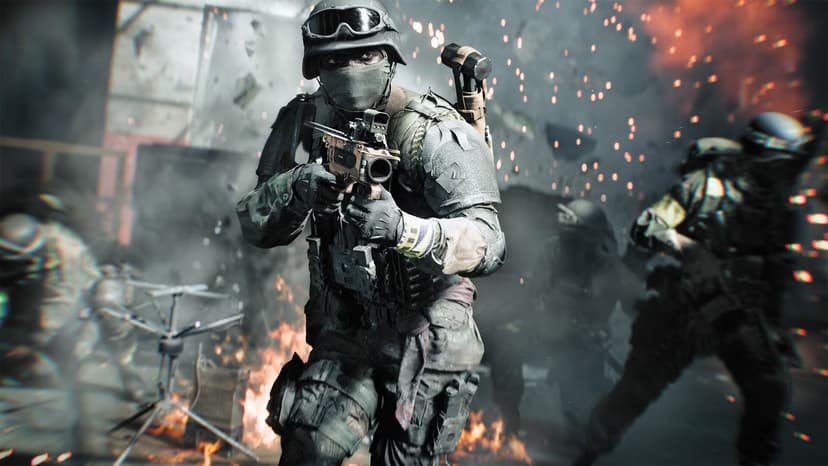
How Ghost of Yotei's Budget Compares to Tsushima
In the world of AAA game development, budgets are a critical factor that can make or break a project. With the announcement of Ghost of Yotei, many fans and industry analysts are curious about how its budget stacks up against its predecessor, Ghost of Tsushima. While exact figures are often kept under wraps by developers, we can draw comparisons based on industry trends, known data, and the scope of each game.
Understanding Game Development Budgets
Before diving into the comparison, it's important to note that game budgets are multifaceted. They include costs for:
- Development Team: Salaries for programmers, artists, designers, and other staff.
- Technology: Licensing fees for engines like Unreal Engine or proprietary tools.
- Marketing and Promotion: Advertising campaigns, trailers, and events.
- Localization and QA: Translating the game for global markets and ensuring quality.
- Post-Launch Support: Updates, DLC, and maintenance.
Ghost of Tsushima, developed by Sucker Punch Productions and released in 2020, was a massive success. It's estimated to have had a budget in the range of $60-80 million, which is typical for a high-end AAA open-world game. This investment paid off, with the game selling over 8 million copies by 2021 and receiving critical acclaim for its visuals, storytelling, and gameplay.
Ghost of Yotei: What We Know So Far
Ghost of Yotei is the rumored or announced sequel to Ghost of Tsushima, though details are still emerging. Based on the trajectory of sequels in the gaming industry, we can expect its budget to be higher. Here's why:
- Increased Scope: Sequels often expand on the original, with larger worlds, more content, and improved graphics. This requires more resources.
- Inflation and Rising Costs: Development costs have increased since 2020 due to inflation and higher salaries in the tech industry.
- Technological Advancements: If Ghost of Yotei is targeting next-gen consoles like the PS5, it might utilize more advanced tech, driving up costs.
- Marketing Push: Successful franchises typically receive larger marketing budgets to build hype.
Estimates suggest that Ghost of Yotei could have a budget ranging from $80 million to over $100 million. This would place it among the upper echelon of game budgets, similar to titles like The Last of Us Part II or Cyberpunk 2077.
Factors Influencing the Budget Comparison
- Team Size and Experience: Sucker Punch has grown since Tsushima, potentially allowing for more efficient development but also higher payroll costs.
- Engine and Tools: Reusing the engine from Tsushima could save money, but significant upgrades might offset those savings.
- Global Inflation: Economic factors mean that the same amount of money buys less today than in 2020, so a higher budget might not translate to more content.
- Market Expectations: With Tsushima's success, there's pressure to deliver an even better product, which often requires more investment.
What This Means for Gamers
A higher budget for Ghost of Yotei could mean:
- Enhanced Visuals and Performance: Better graphics, smoother gameplay, and more immersive worlds.
- Richer Content: More side quests, characters, and activities to explore.
- Longer Development Time: Larger budgets often correlate with longer development cycles, so patience might be required.
- Potential for Microtransactions: To recoup costs, developers might include optional purchases, though Sucker Punch has a good track record with fair monetization.
Industry Context
Comparing these budgets to other games:
- Ghost of Tsushima (~$60-80M): Similar to Horizon Zero Dawn or God of War (2018).
- Ghost of Yotei (estimated $80-100M+): On par with The Witcher 3: Wild Hunt or Red Dead Redemption 2, which had budgets around $80-100M.
It's worth noting that some games, like Grand Theft Auto V, had budgets exceeding $200M, but they are exceptions rather than the rule.
Conclusion
While we await official numbers, it's clear that Ghost of Yotei is likely to have a substantially larger budget than Ghost of Tsushima. This reflects the gaming industry's trend towards bigger, more ambitious projects. For fans, this could mean a more polished and expansive experience, but it also highlights the increasing costs and risks associated with AAA development. As always, the proof will be in the playing, and we look forward to seeing how Sucker Punch leverages this investment to create another masterpiece.
Keep an eye on official announcements for concrete details, and in the meantime, revisit Tsushima to appreciate the foundation upon which Yotei will build.












